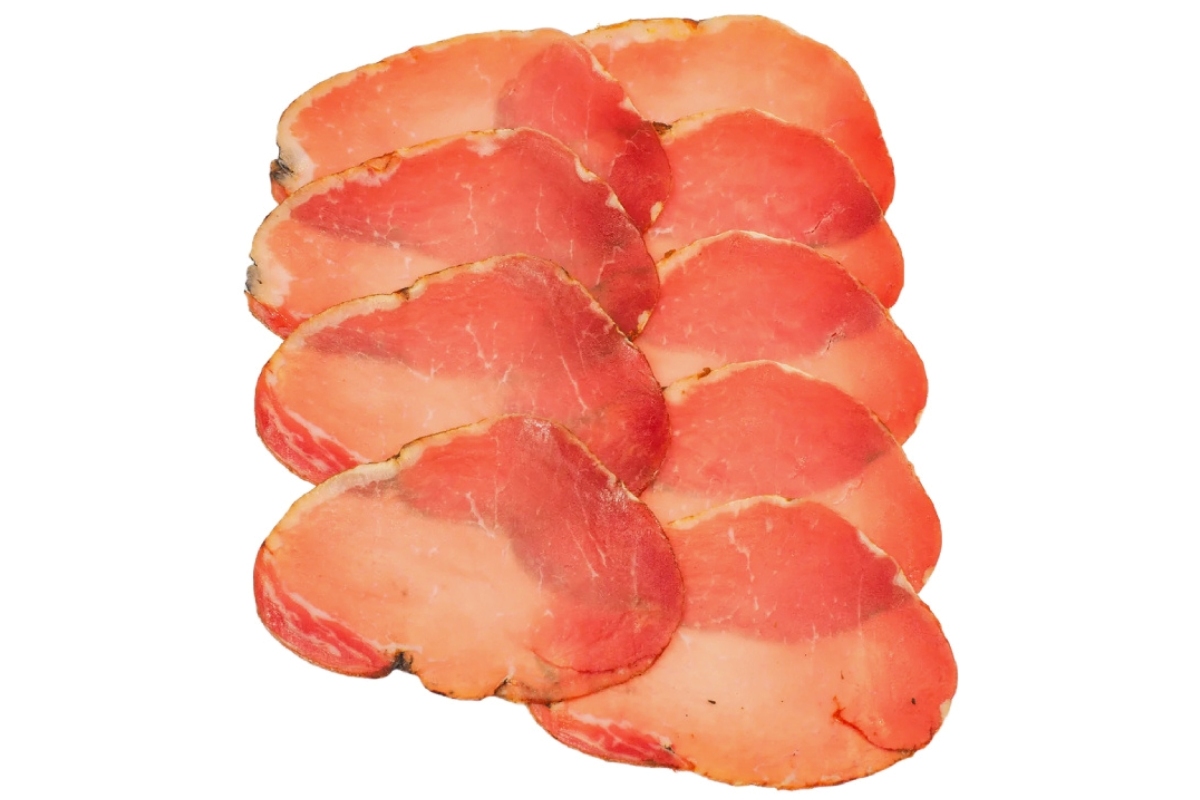
Pork loin is a versatile and delicious cut of meat that offers a variety of nutritional benefits. Whether you are a meat lover or someone looking for a healthy protein option, pork loin can be a great addition to your diet. In this article, we will explore the nutrition facts of pork loin, specifically focusing on a 100g serving size. Understanding the nutritional content of this lean cut of meat can help you make informed choices when it comes to meal planning. From its protein content to its essential vitamins and minerals, pork loin offers an array of nutrients that can contribute to a balanced and nutritious diet. Let’s dive into the 15 pork loin nutrition facts and discover why this meat deserves a place on your plate!
Key Takeaways:
- Pork loin is a lean protein packed with essential nutrients like protein, vitamins, and minerals. It’s a great option for those looking to manage their weight and support overall health.
- Pork loin is a versatile and delicious meat that can be enjoyed in various dishes. It’s low in carbs, high in protein, and can be prepared in ways that suit different dietary preferences.
Pork Loin Nutrition Facts –
The 15 Pork Loin Nutrition Facts 100G reveal that pork loin is a rich source of high-quality protein, containing approximately 26 grams per 100 grams serving.
Pork Loin Nutrition Facts –
Did you know that 100 grams of pork loin contains only about 2 grams of saturated fat? This makes it a lean option for those watching their fat intake.
Pork Loin Nutrition Facts –
Pork loin is also a good source of essential vitamins and minerals, including vitamin B6, vitamin B12, niacin, and selenium.
Pork Loin Nutrition Facts –
One serving of 100 grams of pork loin provides approximately 153 calories, making it a relatively low-calorie choice for those looking to manage their weight.
Pork Loin Nutrition Facts –
Pork loin is a great dietary source of iron, with 100 grams providing approximately 9% of the recommended daily intake.
Pork Loin Nutrition Facts –
With around 300 milligrams of potassium per 100 grams, pork loin is a helpful option for maintaining healthy blood pressure levels.
Pork Loin Nutrition Facts –
Compared to other meats, pork loin has a relatively low sodium content, making it a suitable choice for individuals on a low-sodium diet.
Pork Loin Nutrition Facts –
100 grams of pork loin provides about 4 grams of monounsaturated fats, which are known to support heart health.
Pork Loin Nutrition Facts –
Pork loin is a valuable source of phosphorus, an essential mineral that plays a crucial role in bone health.
Pork Loin Nutrition Facts –
It is interesting to note that pork loin contains small amounts of zinc, magnesium, and copper, contributing to overall nutrient intake.
Pork Loin Nutrition Facts –
Pork loin is a versatile protein option that can be prepared in various ways, whether grilled, baked, roasted, or stir-fried.
Pork Loin Nutrition Facts –
This lean meat is also a good source of amino acids, which are essential for muscle growth, repair, and overall health.
Pork Loin Nutrition Facts –
When consumed in moderation as part of a balanced diet, pork loin can contribute to overall dietary satisfaction and enjoyment.
Pork Loin Nutrition Facts –
Pork loin can be paired with a wide range of herbs, spices, and marinades to enhance its flavor and create delicious culinary dishes.
Pork Loin Nutrition Facts –
For those following a low-carb or keto diet, pork loin can be a fantastic choice as it is naturally low in carbohydrates.
Conclusion
Pork loin is a delicious and versatile cut of meat that offers a range of health benefits. In this article, we explored 15 nutrition facts about pork loin per 100g serving. From its high protein content to its rich array of vitamins and minerals, pork loin proves to be a nutritious choice for those seeking a balanced diet.With a low calorie count and minimal fat content, pork loin can be a great option for individuals looking to maintain or lose weight. Its high protein content supports muscle growth and repair, making it an excellent choice for athletes and fitness enthusiasts. Additionally, pork loin is a good source of essential nutrients such as iron, zinc, and B vitamins, which play a crucial role in maintaining overall health and well-being.Whether you enjoy it grilled, roasted, or sautéed, pork loin can be a delicious addition to any meal. Remember to choose lean cuts and practice moderation to reap the maximum health benefits. So go ahead and savor the flavors of pork loin while nourishing your body.
FAQs
1. Is pork loin a lean cut of meat?
Yes, pork loin is considered a lean cut of meat as it has less fat compared to other cuts. It is important to trim any visible fat to keep it lean.
2. How many calories are there in 100g of pork loin?
Approximately 143 calories are found in 100g of pork loin.
3. Is pork loin high in protein?
Yes, pork loin is a great source of protein, with around 26 grams per 100g serving.
4. What vitamins and minerals are found in pork loin?
Pork loin is rich in essential nutrients such as iron, zinc, phosphorus, selenium, and B vitamins, including thiamin, niacin, and vitamin B6.
5. How can pork loin be prepared?
Pork loin can be prepared in various ways, including grilling, baking, roasting, or pan-searing. It is a versatile cut that can be seasoned with herbs, spices, or marinades according to personal preference.
6. Can pork loin be a part of a healthy diet?
Yes, pork loin can be a part of a healthy diet when consumed in moderation as part of a balanced meal plan that includes a variety of other nutrient-rich foods.
7. Are there any health benefits of consuming pork loin?
Yes, pork loin offers several health benefits, such as supporting muscle growth, contributing to proper brain function, and providing essential nutrients for overall health and well-being.
8. Is it necessary to cook pork loin to a specific temperature?
Yes, it is crucial to cook pork loin to an internal temperature of 145°F (63°C) to ensure it is safe to consume. Using a meat thermometer is the best way to monitor the temperature accurately.
9. Can pork loin be enjoyed by individuals following a low-carb diet?
Yes, pork loin is a suitable choice for individuals following a low-carb diet as it contains very few carbohydrates.
10. Can pork loin be frozen for later use?
Yes, you can freeze pork loin for future use. Make sure to wrap it tightly in freezer-safe packaging to prevent freezer burn.
Was this page helpful?
Our commitment to delivering trustworthy and engaging content is at the heart of what we do. Each fact on our site is contributed by real users like you, bringing a wealth of diverse insights and information. To ensure the highest standards of accuracy and reliability, our dedicated editors meticulously review each submission. This process guarantees that the facts we share are not only fascinating but also credible. Trust in our commitment to quality and authenticity as you explore and learn with us.


